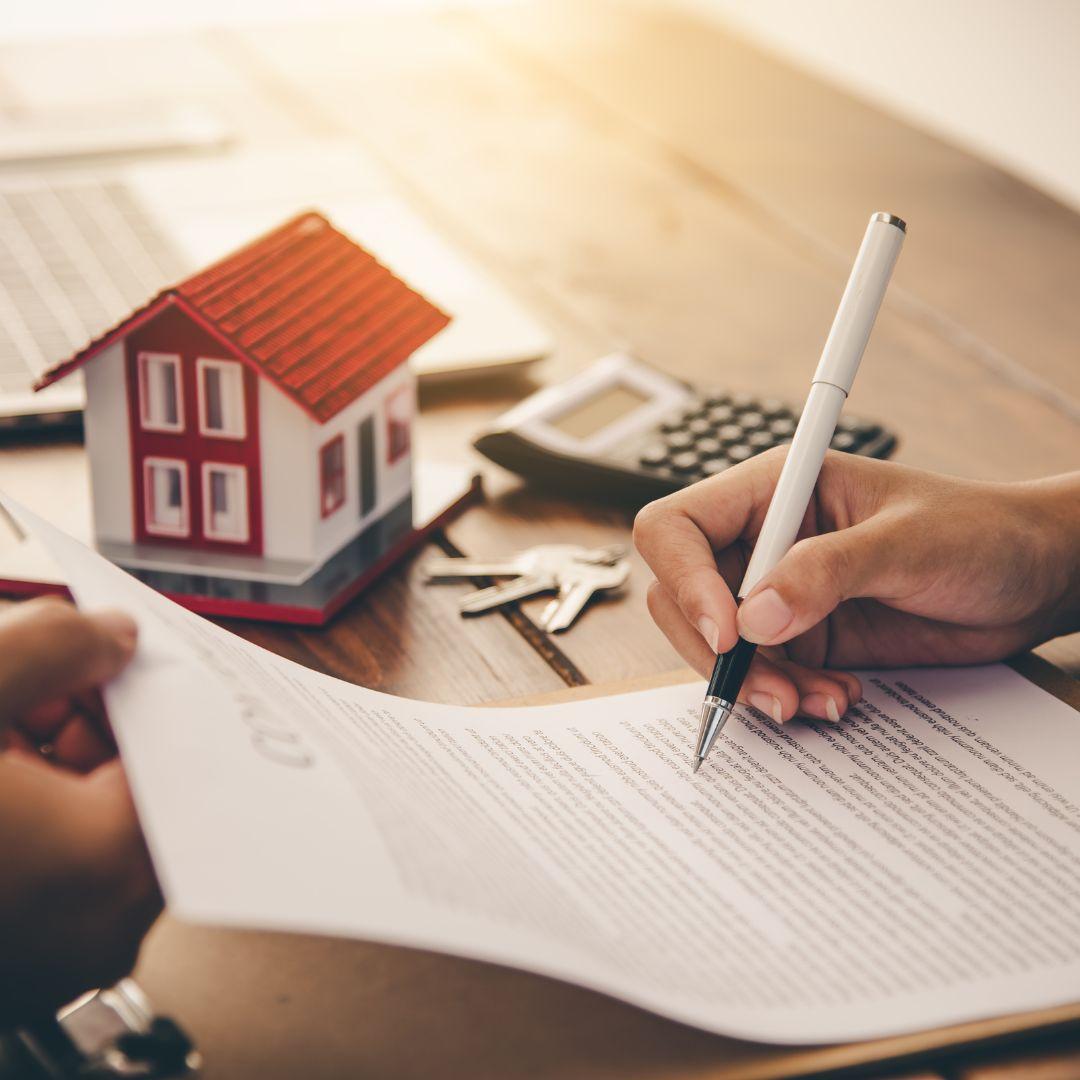If you’re looking to buy your first home, you’ll know that, though it’s undoubtedly an exciting time, it’s also stressful. There are many vital boxes to tick and things to consider to ensure that you’re stepping onto the property ladder with the right foot forward.
So, where do you start? With the deposit, ideally. As a buyer, before you even start viewing properties, you need to understand which mortgages you can genuinely afford – and, therefore, how much you’ll need to set aside for a deposit. If you haven’t reached that level of understanding quite yet, you’re in the right place.
This article answers six of the most frequently asked questions about mortgage deposit amounts…
1. What Size Should my Deposit Be?
Many people determine their target deposit amount when they start saving to purchase a property. Though this amount might shift with the market and time, it remains crucial for setting realistic expectations surrounding timeframe and financial goals.
The size of the deposit you’ll require depends entirely on the price of the house you buy and the type of mortgage you apply for. Mortgages are generally available at up to a 95% loan-to-value (LTV) ratio, meaning you’ll need a deposit of at least 5% of the property price, with a mortgage covering the remaining 95%. Using a £300,000 property as our example, your deposit sizes for different loan-to-value percentages would be as follows:
- 95% LTV – You’d need a deposit of £15,000.
- 90% LTV – You’d need a deposit of £30,000.
- 85% LTV – You’d need a deposit of £45,000.
- 80% LTV – You’d need a deposit of £60,000.
A larger LTV ratio usually represents a greater risk to the lender, meaning you’ll often find better rates and deals as your LTV reduces and your deposit amount increases. If you’re looking for a specific amount to aim for, you should determine this based on:
A) Property prices in your ideal purchase area – The cost of homes where you’re hoping to buy will determine a lot for you in terms of your next moves.
B) Monthly repayment costs – Your deposit should align with a mortgage you can actually afford each month. The worst thing you can do is overextend.
2. How Much Is the Average First-Time Buyer’s Deposit?
It’s always tempting for first-time buyers to compare themselves to others in an effort to become better informed about their likely future expenses. The curiosity is understandable, but the comparison isn’t generally very useful. Every buyer is different, from their financial means to their credit score to their ideal property purchase price.
The average first-time buyer in the UK usually puts down a 20% deposit or thereabouts, but the specific amount differs massively depending on several factors – most primarily, location. London house prices, for example, tend to be far more expensive than prices in other places across the UK, so buyers will need a more significant deposit amount in the capital city.
3. Is a Bigger Deposit Better?
As mentioned under question one, your LTV ratio impacts the mortgage deals open to you. If you can put down a 40% deposit, for example, you’ll have access to some of the best rates available. If this isn’t a realistic goal, don’t worry – you’re in the majority. Most first-time buyers put down a deposit well below this ‘ideal’ amount, and it’s a more common goal for people looking to re-mortgage (who can often use money from a previous property sale).
That said, there are still many advantages to maximising the size of your deposit, and there’s much distance between a 5% deposit and, say, a 15% deposit.
As well as making you less risky in the eyes of lenders (and, therefore, more able to land favourable interest rates), a bigger deposit:
- Reduces the size of your capital repayments
- Makes it easier to sell your home in the future
- Makes you less likely to fall into negative equity if the value of your house drops
4. Can I Get a 100% Mortgage with No Deposit?
Before the 2008 financial crisis, lenders would sometimes offer 100% mortgages to prospective buyers. These would cover the total cost of a property purchase with no need for a deposit.
Following the crisis, many people defaulted on their 100% mortgage repayments, and their homes were repossessed. 100% mortgage availability declined sharply at this point, and this kind of deal is currently only available as a guarantor mortgage.
In a guarantor mortgage, a family member takes on financial risk by offering their savings or home as collateral if you cannot handle your monthly repayments. Note that guarantor mortgages carry the highest risk of negative equity, which is worth considering if you’re exploring them as a possible option.
5. Can I Use a Gifted Deposit to Buy a Home?
If you’re fortunate enough to receive a financial gift from a loved one or family member intended for use as your deposit, this won’t be treated in the same way as, for instance, taking out a loan would. It’s unlikely to negatively affect your eligibility or mortgage approval, especially if it comes without strings attached.
Still, some necessary steps must be followed to keep everything above board. Most mortgage lenders will require you to provide a ‘gifted deposit letter’. In this letter, the gift-giver/gift-givers will need to explain that the money is a gift and outline whether or not any repayment is expected. Your conveyancer can help you to ensure that this letter is sufficient as a legal statement for your lender.
6. How Can I Save for my Deposit?
If you’re ready to save for a deposit but aren’t quite sure where to start, it’s important to remember that little moves in the right direction can add up to something great over time. 100 pennies become a pound! As a starting point, we’d recommend the following:
- Auditing your outgoings and cutting back where possible
- Setting and keeping to a weekly spending budget
- Maximising your savings (interest rates, utilisation of your ISA allowance, etc.)
- Reducing your monthly rent (if possible – consider a house share, an extra roommate, or even temporarily moving back to your parents’ home)
- Exploring government assistance and savings support options
Please don’t hesitate to contact a member of the team to find out more about the topics covered.



